The Ultimate Guide to Geographic Farming
Do you want to become the go-to agent for neighborhood listings? Check out these insider tips from an experienced real estate agent. Become a neighborhood expert, otherwise know as geographic farming.
Learn more about working as a real estate agent and get exclusive offers!
Jason Edwards is a veteran real estate agent, public speaker, and video host of Real Estate Neighborhood Farming With Jason Edwards. As a sales agent, he owned over 90% of the listings his neighborhood. Clearly, he knows how to become the go-to agent in a specific area. Check out these tips to learn how you can do the same.
As a real estate agent, you are a neighborhood farmer. The houses represent the land and the people are the crops. Real estate agents may use the term "farm" to refer to a geographical area.
In this guide to geographical farming, we will cover the following topics. What is Geographical Farming? Common Farming Mistakes Building Your Farm Marketing to Your Farm
What is Geographical Farming?
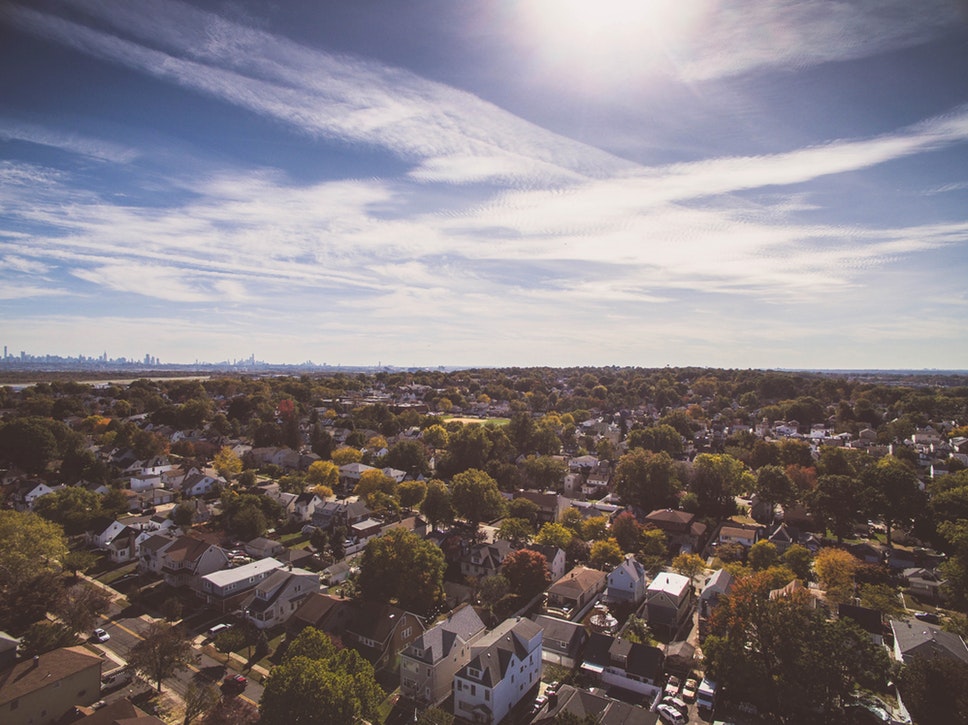
Looks kind of like a field of crops, right?

Right.
All real estate agents (residential, commercial, leasing, etc.) have farms available to them. If you as a farmer take care of your farm, eventually, as the seasons pass, you'll reap the rewards. Likewise, if an agent takes care of the people in their farm, they'll be rewarded with referrals and repeat business.
Common Farming Mistakes
Most agents fail in securing their farm. This is due to a number of reasons, and many of them are quite easy to remedy right from the start of your farming plan. Let's check out ten common mistakes that many agents make, and how you can avoid them.
Mistake #1 - Not Thoughtfully Choosing the Area
Many people assume that the best place they can start farming is their own neighborhood. While this makes sense, seeing how the agent probably knows their own neighborhood, it is important to carefully consider the decision.
Imagine taking your dog for a walk at night and passing by your properties and clients, always being reminded of work. For some agents, that's great! However, many people would prefer to have a little separation between their work and home life. Make sure to choose what's right for you.
Need To Renew Your Real Estate License?
Take our online continuing education course today and start the renewal process for your real estate license!
Mistake #2 - Choosing Too Large of an Area
Starting a farm requires a significant amount of time and money investment. The larger the area, the more time and money is required.
If you pick a neighborhood with 3,000 homes, marketing to those 3,000 homes month-to-month will exhaust you and your wallet.

We recommend starting with a more manageable area of around 300 homes. If the neighborhood you really want to farm is bigger than that, just choose a section of that neighborhood to start with.
Mistake #3 - Non-existent or Inconsistent Marketing Plan
Just like a farmer needs to be consistent in fertilizing and watering their farm, agents need to be consistent in marketing to their farm. There won't be much turnover overnight once you choose your farm location. The average American is in their home five years before they move.
The job of the farming agent is to be patient through those lead cycles. By lead cycles, we mean the time it takes for a family to live in a property and eventually experience a big enough life change that prompts them to move. The agent needs to work on their marketing all throughout that time, anticipating the eventual move.
Mistake #4 - Ego-Based Marketing
Ego-based marketing highlights the look of the agent above their skill. Clients need more than a sleek style of an agent - they need expertise.
Mistake #5 - Having an Incomplete Database
To become a neighborhood expert, you have to know about the people in the neighborhood, but simply knowing their names is not enough. As you meet people in your geographic area, build a database of information that includes children's birthdays, pets' names, and random interests of the families. We call this relationship data.

It will take a lot of time, but the more you know about people, the more you can gain their attention and trust.
Mistake #6 - Giving Up Too Soon
People can be impatient when they invest their time and money into something. Sometimes you may pay for an advertising space and not make a single sale from it.
Be patient. Creating a farm doesn't happen overnight. If you don't keep your long-term plan in mind, it can seem like your business is never going to take off. Don't give up before your seeds begin to take root.
Mistake #7 - Little-to-No Face Time
Overuse of technology can result in a lack of face time. Texting is not as personal as calling someone. And calling someone isn't as personal as meeting them in person.
You can't expect to build a strong relationship with someone without ever seeing them. To build a great farm, an agent needs to get out from behind their keyboard and start communicating face to face.
Mistake #8 - Too Much Reliance on Volunteering
Volunteering for a good cause is a great thing to do. It may even aid in your networking efforts. However, agents that volunteer in their farm area so they can gain more business will become frustrated. More so than being a good volunteer, seller clients care about whether or not you are a good agent.
Volunteer, but don't volunteer with the expectation that it will bring you business.
Mistake #9 - Not Expanding Knowledge of the Neighborhood
Many agents get so bogged down in the residential properties that they never learn the true character of the neighborhood. A house will sell itself, but the restaurants, small businesses, parks, and other unique features of a neighborhood will sell a lifestyle to buyers.

Make an effort to learn about and truly appreciate the history of your farm in addition to the people in it.
Mistake #10 - Not Turning Competitors' Shortcomings Into Opportunities
When your competitor is inconsistent in their marketing and inconsistent in their reliability, they are breaking trust with their farm, neglecting the crops so to speak.
This presents an opportunity for you. By always being consistent with your farm and by always taking care of the little things, you'll gain a reputation as someone that people can trust. And when the market swings, in either direction, people will turn to someone they can trust. In this way, you are more prepared for market swings than your competitor who dropped the ball in their marketing plan.

And trust equals referrals.
Sometimes it might seem like its been ages since anyone in your farm has moved. However, if you tend to your farm correctly, there's nothing to worry about.
As you probably know, referrals are one of the most common ways that agents get business. Every single person that you invest in knows other people inside and outside of your farm, and if you eventually win over their trust, they are sure to recommend you whenever someone they know needs to sell their home.
Consistency is key.
If you continue to market to the farm while providing great service to your clients, you'll eventually start to scoop up all the business in the area.
You will get as much out of your farm as you put into it. Kinda like life, huh?
Building Your Farm
The next step in farming is to actually start building your farm, but before claiming your turf there are a few guidelines to consider following.
Choose a Good Geographic Area
Choose an area based on its character, not its price point.
Pick a neighborhood where you genuinely like hanging out, one that you relate to and are passionate about working in. You don't have to live on your farm. As long as you are familiar with the area and the businesses within it, it can be a great location choice.
You will also want to do some research to see how lucrative the area could be. Start by calculating last year's turnover rate. This is the percentage of homes in an area that sold in a given time frame. For example, your prospective neighborhood has 300 homes. You find on the MLS that 30 of those homes made it to closing last year. More than 30 were listed last year, but you only want to count the number that actually sold. 30 of 300 homes sold in your farm, giving it a 10% turnover rate for last year. Next, you would calculate the previous few years as well to make sure this has been consistent.
Yearly turnover for your farm should be: Relatively high (over 10% is best) Consistent over the past several years
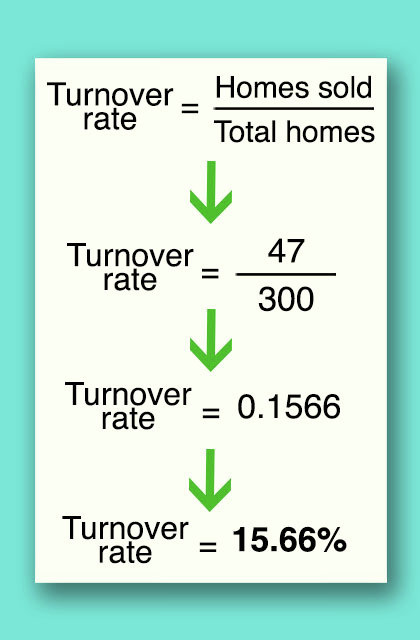
Don't Pick Someone Else's Farm
As you are researching the MLS, take note of any competitor agents who do a lot of business in the neighborhood.
If another agent has more than 25% of the market share, find another area to farm.
These agents have likely spent years filling the role of neighborhood expert. They are already in the position you're pursuing. Attempting to dethrone their operation will cost lots of extra time, money, and effort. It's an unnecessary step in the process of implementing your farm, and a costly one at that.
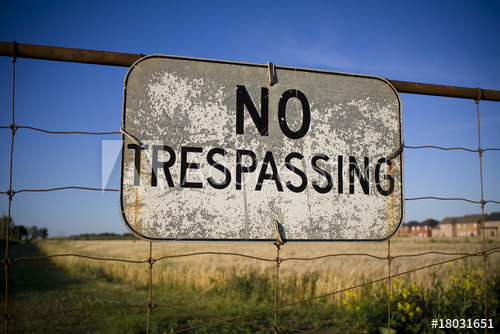
Taking on competition is not a bad thing by any means. If there are other agents in the area with under 25% of the market share, consider taking them on. Check their figures on the MLS. Some agents will advertise themselves as neighborhood experts, but in reality, only have around 5% market share. Hit 'em with the facts.
Gather Data for Your Farm
Just as you wouldn't go out and plant a field of seeds without at least Googling "how to be a farmer" first, you wouldn't want to rush into your new area without doing some research. No, not some research, a lot of research.
In addition to scouring the MLS, you must gather data for your marketing strategies.
Start by creating a monthly budget based on the farm size.
At the minimum, you'll want to factor in $1 per house in the area, plus an additional $200 for miscellaneous marketing expenses. For a 300-home area, this is a $500 per month minimum. If you can't afford this monthly marketing investment, you aren't financially prepared yet.
Checking your budget is a critical step in building your geographical farm. You need money for marketing, just as you need money for seeds to grow crops.

Let's use an example.
Agent Penelope picks a neighborhood for her farm. Her first order of business is to create and mail out beautiful, eye-catching postcards to every house in the neighborhood. This costs her $350 monthly.
Over the next few months, Penelope finds herself spending a lot of money on unplanned marketing expenses. She's buying wine and cheese and fresh flowers for her open houses. She's paying for subscriptions to online marketing tools and running paid ads on social media. She's trying to out-do her competition with bigger and better giveaway prizes.
Without realizing it, Penelope has spent way more than she can afford on marketing to her farm. She didn't analyze her budget to make sure she could support her marketing plan. She has to stop marketing and so she stops getting listings. Don't be like Penelope.
All the research needed for your farm may seem overwhelming, but there are really only four numbers to check.
- Have I picked approximately 300 homes to farm?
- Is the turnover rate 10-15%?
- Do any of my competitors have over 25% of the market share?
- Do I have at least $500/month to invest into marketing to my farm?
Answer all four questions right and you have the green light to start farming.
Marketing to Your Farm
The best way to market is to talk directly to people. Sure, digital ads are great, but nothing will leave a lasting impression like face-to-face communication.
Usually, this opportunity will have to come from lead generation. One method of this is to hop on the phone and just start calling every home in your farm. When starting out, you'll want to follow a guide of talking points, before you get comfortable with your own rhythm.
Let's review.
Step 1: Identify the person you're talking to, make sure you're talking to the owner. Make a note, create a file, or whatever works for you to remember their name and situation. Step 2: Introduce yourself. Step 3: Ask if they've thought about selling their house. Step 4: It doesn't matter if they say "yes" or "no", but tell them a good reason why you're asking (beyond the fact that you want the money). For example, if you are looking to place a family in a home, tell your lead about the family and why they are looking to possibly move into the home. Step 5: Ask them again if they are interested in selling, or know someone who is. Step 6: End the call, hopefully with permission to stay in touch or follow up. Make a note of their answer if your database.
Remember that you are marketing yourself, your expertise, and your professionalism to others. Experienced agents know that houses sell themselves. It's you that needs to be put out there.
Two Types of Marketing in a Real Estate Context
Two common methods of marketing are interruption marketing and permission marketing.
Interruption marketing makes its way into consumer's everyday lives even though they didn't ask for it. Examples include: "Just Listed" postcards Newsletters * Radio commercials
Permission marketing only reaches people when they volunteer their information over. This could be through a simple e-mail submit bar on a website, to filling out a survey. These consumers are giving permission to be marketed to and likely means they are already interested in your service. Examples of permission marketing include: Market update report Cost vs. value report
Cost vs. value reports are important because they can show how much money is returned to a seller in value depending on what areas of their house they update or remodel.
You can download this info, add images and make it look like your brand, then offer it as a permission marketing trade for potential client info.
The Basic Marketing Plan

Having a solid marketing plan is super important for a real estate agent. There are three basics for every marketing plan.
- Mail something once a month (minimum) to your farm. Make sure you put your brokerage name as prominent. Don't undersell who you represent.
- Call and have a conversation once a quarter. It may be a lot of people, but you should contact as many as possible. Depending on the person, it may be better to text, e-mail, or reach out to them on social media. Those methods can be just as effective and perhaps more convenient than a phone call for some people.
- See them once a year. This can be at a client party or knocking on their door and dropping off something special.
Gaining Momentum With Your Marketing Plan
To get the ball rolling, you should be working to make contact with everyone in your database. Here's how:
- Call or get out on the streets and meet them in person.
- By developing and practicing your dialogue on the phone, you will be better prepared to have this same conversation face-to-face.
- A lot of people throw introductory letters away, so it's not necessarily worth your time and money to send one.
To gain momentum, you have to put yourself out there!
Start scheduling open houses. You can use other agents as a resource to see if you can host their open house for them with little to no resistance.
Hosting open houses is a great opportunity to meet neighbors and other possible buyers. If you can't find anyone with a listing, look for For Sale by Owner listings and offer to host their open house for them. Here's why it's great for both the owner and you: They don't want to have to do the work, and you can relieve the pressure for them AND get the chance to meet people and generate leads.
Just Listed and Just Sold Cards.
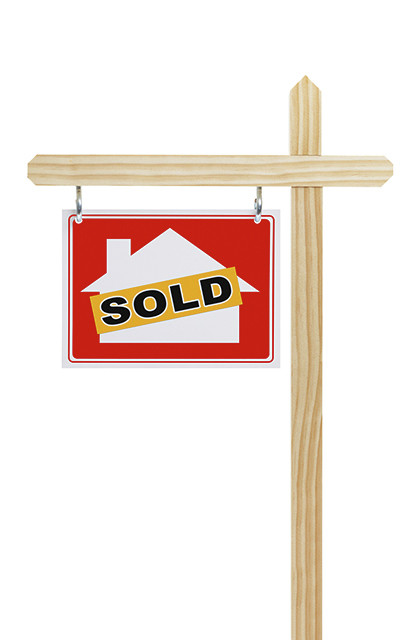
Many agents send Just Listed or Just Sold cards out to the geographic area right around where they just listed or sold a property.
This is because in the real estate business, you move around the city, and rarely are your leads in the same geographic location. After all, why would you try to generate leads in the area you worked in?
But let's explore what this card is and why it's an important marketing tool.
Just Listed and Just Sold cards are pretty self-explanatory, in that they are postcards that are mailed out to promote a newly listed or recently sold property.
Agents use these cards to: Build awareness of a listed home (Just Listed) Or show that they "do business" (Just Sold)
But what kind of information should be on these cards? High-quality photos of the property Your agent information Your contact information Your broker's information * Your broker's contact information.
In terms of design, it is important that your broker's information be the same size as your personal information. Remember, you want to make this as clear and easy to read as possible. But don't fret too hard about it looking absolutely perfect, just get it out there!
In addition to having your and your broker's info on your cards, you should also display a strong call to action listed on both your physical mailers and your online and digital ads.
Make sure every piece of marketing you put into the world -- whether print or digital -- has a clear, strong message at the end that gives people reasons to make contact with you.
Digital Marketing

With digital marketing, timing is everything. You can trigger your Facebook ads to sync up with when you know people will receive your postcards. It's a mix of old school and modern marketing.
Luckily, Facebook gives you the option to map out where you want your ads to go. That way, people will see you in their mail and then see you on Facebook, and it'll make people subconsciously think that you're everywhere in the neighborhood. It's as close to being omnipresent as you can get. And that's what you want!
One way to use this marketing tactic to its fullest potential is to offer your potential clients something. For example, you could make an offer to provide a free market value analysis. You could give potential clients the option to "Click here to sign up for free updates". Permission marketing, anyone?

Promoting yourself on Facebook is a great way to get exposure for your business and make yourself more visible to the public. If you already have a personal Facebook account, you might already be doing some business on there.
We have a few tips for you that will help in making sure your Facebook account is doing the most work for you. And if you're interested in upping your game by expanding to other platforms, like Instagram or Twitter, check out our Ultimate Guide for Digital Marketing.
Chances are that you currently post business-related news on your own personal Facebook profile (this same one you use to show off photos from your niece's ballet recital). You might even have bathroom mirror selfies somewhere in there...
If this is you, we would recommend that you create a separate page for business only. Facebook profiles are for personal use, pages are typically for commercial use. Pages offer different tools for businesses, brands, and organizations. Pages are managed by people who have personal profiles, and you can "like" a Page to see updates in the News Feed.

With those differences in mind, a Page is what you will need to get the most out of Facebook for your real estate business. Within your regular Profile, you won't have access to the business tools that are available to Pages. This includes the ability to promote or "boost" your content, so it's presented to a larger and targeted audience.
To set up your page, go to facebook.com/pages/create and then choose the category of your Page (for your purposes, choose Local Business or Place and then Real Estate). Then click Get Started and follow the instructions on the page.

Treat this new Facebook Page you've just created as the public image of your business. Be extra careful about what you post. The last thing you want to do is alienate any of your clients!
Don't slander other businesses. Don't take a political position related to your business. Don't be crass. Conduct yourself on Facebook the way you would while standing in front of a potential client.
This Facebook Page exists to advertise your services, so post content that helps that cause. For example: your available homes, testimonials, and fun pictures or stories related to your work. Always try to include contact information for potential clients to reach out to you in case they are interested in what you're selling.
Make sure that anything you share is appropriate for your audience. Research your sources and always cite statistics as well.
We mentioned "boosting" your Facebook page posts.

You're all set to get your content squared away. Now it's time to get it in front of some eyeballs.
The simplest way to promote content is to "boost" it. You'll see the "Boost Post" button at the bottom of your posts. When you click this button, you will be prompted to select an audience and the amount that you would like to spend on the post.
The audience options include: 1. People you choose through targeting 1. People who like your Page 1. People who like your Page and their friends

Studies show that smaller pages (with less than 1,000 likes), content that is not boosted will only reach about 22% of a page's fan base.
Luckily, with Facebook's content boosts, you can also set up a custom audience based on location, which is great for advertising to your farm. Once you set the parameters of your audience, you will be able to save those settings. Facebook will also tell you how many people qualify for that specific audience.
As a rule of thumb, the larger the audience, the more people will be reached per dollar. But smaller audiences can oftentimes be more accurate, so you can play around with the settings to find what works best for you.

After you select your audience, you will choose how much you want to spend on reaching them, and for how long. If you normally advertise your services in a local periodical or bus stop, or wherever, you should try moving some of those advertising dollars to Facebook. The dollar-to-engagement ratio is impressive, even if you just spend $10.

The more you use Facebook for your business, the more you will learn what your audience wants to see. Keep your page fresh with new content and have fun!
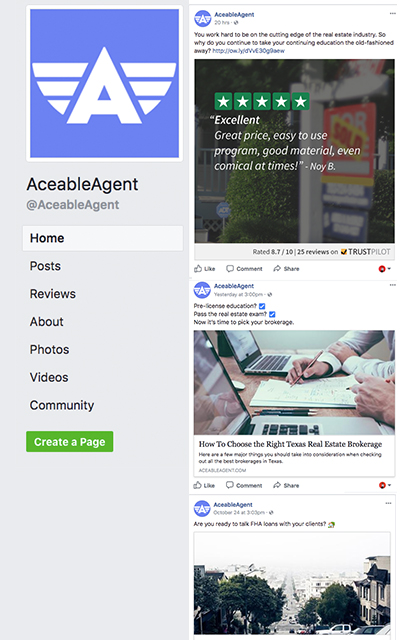
Testimonials
Google, Facebook, LinkedIn, e-mail, any positive reviews or testimonials are the gold stars of your reputation, literally.
Get as many five star reviews on Google as you can. Seeing a 5-star review under your name is the best thing that could greet a Googler's eye. If you intend to dominate a geographic area, chances are they will Google you. Everyone uses Google!
Facebook comes in a close second to Google for review research. In 2017, Fortune reported that Facebook and Google make up more than 60% of internet revenue in the United States. For comparison, no other digital platform has a market share above 5%. In other words, it's definitely worth your while to be well-representing on Google and Facebook.
Don't be afraid to ask satisfied clients for reviews. Chances are they'll be more than happy to provide one after you have helped them out.
One great way to gather testimonials and client information is to do annual real estate reviews.
Very few real estate agents proactively make this offer, and perhaps not a lot of people will actually take you up on this offer, but, if you do a handful of these reviews, you'll likely find the people who will sell, refer, or stay tuned into your services.
What happens in a real estate review?
- Agents give clients an overview of the current market
- Agents do a competitive market analysis (CMA), basically a simplified home appraisal
- The client gets a current and specific opinion of what their house is worth
- The client gets more detail of the broader market and the house history
- The client gets to tour their home with the agent
- The agent leaves the client with a package of material
This may seem labor intensive, but investing the energy can provide some incredible leads down the road.
Not only do you get to prove yourself, but you also build a deeper relationship with potential clients. Then if you do list the house, you already have a ton of prior property knowledge to follow up on.
Staying Consistent
We have covered a lot of information, tips, and guides in this post. However, the main thing to take away from all is to stay consistent. It is the most valuable practice for any type of marketing.
Consistency outweighs quality. If you're consistent, it can be better than sending out expensive, time-consuming postcards, or spending tons of money designing ads. People aren't spending tons of time looking at your marketing, but they will recognize your name if they see it over and over again.
Consistency builds familiarity, which builds trust.
Think of your real estate career like an airplane taking off: It takes tremendous effort to get it off the ground, and once you get flying and level out, you naturally won't be putting out as much effort.
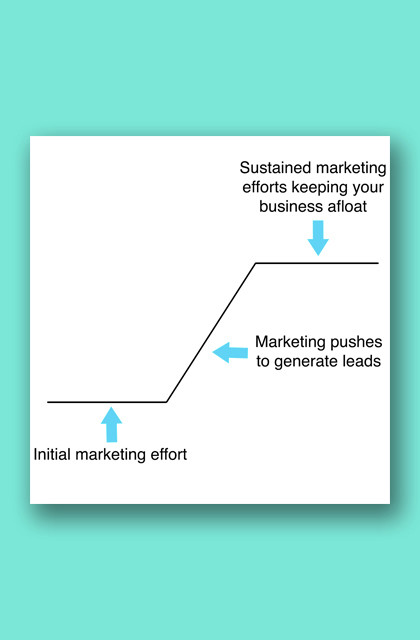
If you're consistent, you don't have to push your marketing so hard the whole time.
If you fall out of the habit or get discouraged, your real estate airplane will land, and you'll have to start the hard push again.
Regardless of how much business you're getting, you should never let your marketing efforts slide.
We hope you learned a lot about becoming a neighborhood expert, otherwise known as the practice of geographic farming. To learn even more concepts and tips, we highly recommend checking out Real Estate Neighborhood Farming With Jason Edwards. If you haven't made the first step yet to becoming a real estate agent you can start your pre-license courses today with AceableAgent.
